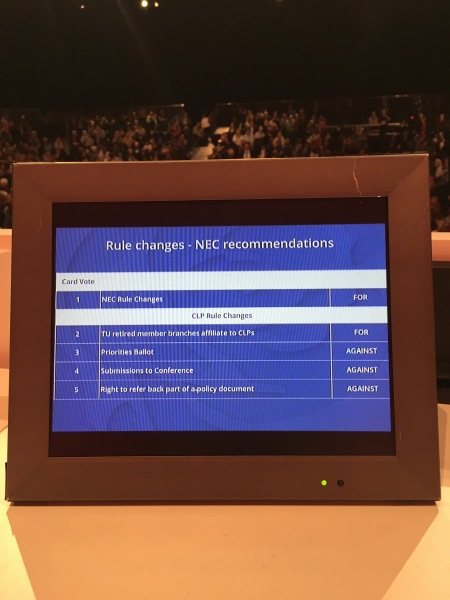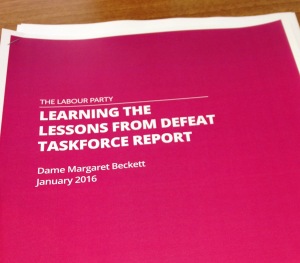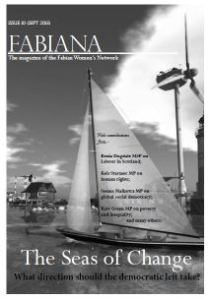Acting Leader’s report and general discussions

Local Government NEC reps Alice Perry and Jim McMahon
Acting Leader Harriet Harman’s report sparked a lively debate on a number of issues including welfare reform, Syria, the leadership contest and the importance of party unity and collective responsibility. Harriet Harman explained that to avoid pre-empting the new Leader and the new policies they may want to adopt, her approach has been to continue with the policies in Labour’s 2015 election manifesto and as outlined in the Your Britain policy documents. It was Harriet Harman’s last NEC meeting and she received heartfelt thanks for all that she has done for the Labour party and for the country, including her work on equality, social justice, human rights and international development.
The NEC was unanimous in our opposition to the Conservative Government’s disgraceful attacks on trade unions and our rights at work. Strong trade unions are essential for strong civil society. Along with the right to vote, the right to strike is a fundamental human right that underpins democracy.
We also discussed the important role Labour Councillors play in leading the fightback against this government. Councillors are the backbone of the party. Despite massive cuts to our funding we have demonstrated the positive difference voting Labour makes and have championed progressive policies that make a real difference to people, such as building new affordable housing, paying workers the living wage, promoting green energy, helping people back to work, tackling payday lending and promoting the use of credit unions, regenerating communities and supporting local businesses, using ethical procurement policies and challenging companies guilty of blacklisting.
Local Government response to the Emergency Budget
The Emergency Budget of 8 July included details of devolution deals with combined authorities including the announcement of elected mayors in Leeds, Liverpool and Sheffield. Cllr Jim McMahon responded that meaningful devolution is needed for all areas, without strings attached. The Budget confirmed cuts of £200m in public health funding to councils (equivalent of 7 per cent) but no in-year cuts to core budgets – and councils now await details of future funding in the Spending Review in the Autumn. We highlighted the need for good communication between local government and the frontbench team which has improved over the past year but still needed commitment as announcements and policy positions are taken which have a direct impact on councils, such as the decision to support the 1% public pay cap. We discussed the impact of low pay in local government and the effect on recruitment and retention in areas such as social work and safeguarding. We continue to work with colleagues from across the Labour movement to oppose the reckless cuts to Council budgets and continued attacks on local democracy.
Labour’s Election Taskforce
In her capacity as the local government representative on the Lessons Learned Taskforce, Cllr Alice Perry has been attending the meetings and gathering feedback from Labour councillors about their views and experience. A good discussion was held with 200 councillors at the LGA Conference. Councillors can feedback individually or as Labour Groups. A big thank you to the 600 plus Councillors who responded to the recent LGA Labour Group survey and to everyone who has sent in their feedback. The experience and feedback of Labour Councillors is a vital part of understanding what went wrong for Labour nationally in the General Election and the lessons we need to learn for the future. If you haven’t already done so, please send your feedback to Continue reading →








 In May 2015 Labour suffered the worst general election defeat in a generation. Interim Leader Harriet Harman MP established a Taskforce, Chaired by Dame Margaret Beckett MP, to look into what went wrong and what lessons we can learn for the future. The final report was published yesterday:
In May 2015 Labour suffered the worst general election defeat in a generation. Interim Leader Harriet Harman MP established a Taskforce, Chaired by Dame Margaret Beckett MP, to look into what went wrong and what lessons we can learn for the future. The final report was published yesterday:


